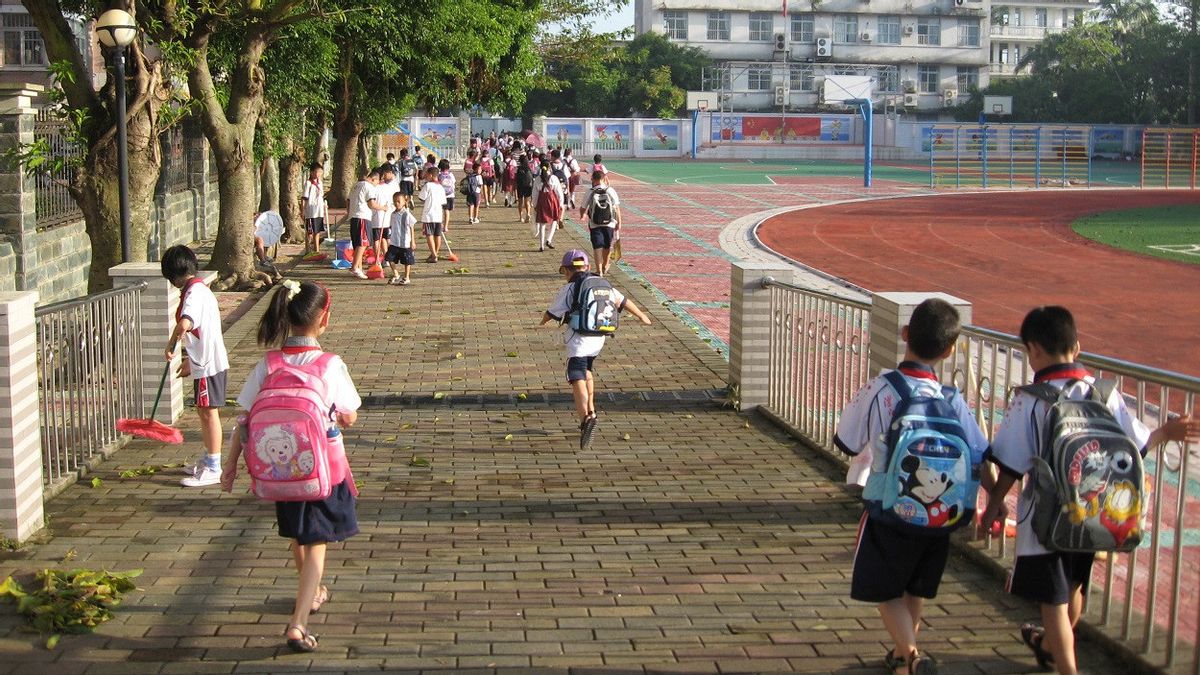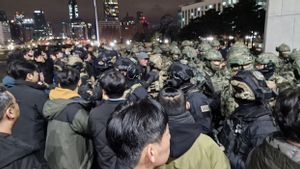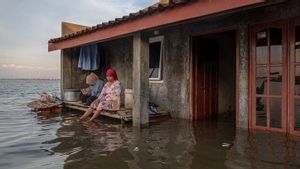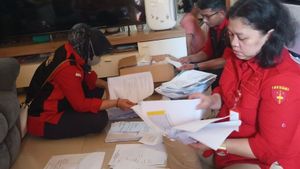JAKARTA - Chinese authorities have decided to abolish written exams for children aged six and seven, as part of an education reform aimed at easing pressure on students and parents in China's hyper-competitive school system.
Citing CNA's Aug. 30, China's previous exam-oriented system required students to take exams from grade one onwards, culminating in the dreaded university entrance exam at age 18.
This system does boil down to a university entrance exam called the Gaokao, where one grade can determine the trajectory of a child's life. This is believed to be a burden on students and parents.
"Over-frequent exams, which put students overburdened and under great exam pressure have been canceled by the Ministry of Education," according to new guidelines released on Monday.
The ministry said "pressure on pupils from a young age "harms their mental and physical health".
The regulation also limits exams in other compulsory years to one semester only, with midterms and try-out exams allowed in junior high school.
The measures are part of broader government reforms in China's education sector, which include a crackdown on overcrowding schools, seen by parents as a way to increase their children's educational wealth.
In late July, China ordered all private tutoring companies to become non-profit, and banned tutoring agencies from giving lessons in core subjects on weekends and holidays, effectively crippling the $100 billion sector.

The goal is to reduce educational inequality in China, where some middle-class parents are willing to spend 100,000 yuan or about 15,400 US dollars or more per year on private tutoring to get their children into top schools.
This condition also affected the property sector, where the price of houses in educational areas also experienced an increase in selling prices.
"No other country has such a strong tutoring culture (like China)," said Claudia Wang, partner and Asia education leader at Shanghai-based consulting firm Oliver Wyman.
With the population growing at its slowest in decades, Chinese authorities lifted the two-child birth limit earlier this year and want to increase incentives for parents to have more children.
The Beijing Municipal Authority last week announced that teachers must change schools every six years, to prevent the concentration of top talent in only a few schools.
In addition, education officials on Monday reiterated the ban on schools establishing "priority" classes for gifted students. The Ministry of Education also banned written homework for first and second graders earlier this year, and limited homework (PR) for junior high school students to no more than 1.5 hours per night.
However, many parents in China still view education as a path to social mobility.
To note, gaokao is one of the few ways that poor rural students can access better educational opportunities and job prospects at top universities.
The English, Chinese, Japanese, Arabic, and French versions are automatically generated by the AI. So there may still be inaccuracies in translating, please always see Indonesian as our main language. (system supported by DigitalSiber.id)











